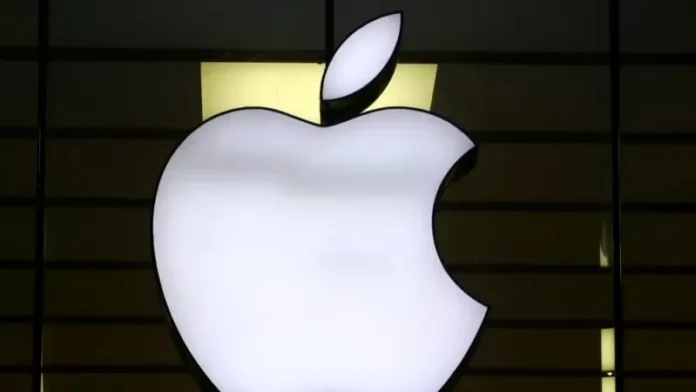London – The European Union has taken a strong stance against tech giant Apple, imposing its first antitrust penalty of nearly $2 billion for violating the bloc’s competition laws. The EU’s executive arm, the European Commission, has accused Apple of unfairly favoring its own music streaming service over its competitors.
According to the commission, Apple had banned app developers from fully informing iOS users about alternative and cheaper music subscription services outside of the app. This practice, which has been going on for almost a decade, has had a significant impact on millions of European consumers. Margrethe Vestager, the EU’s competition commissioner, stated in a news conference that this behavior is illegal and has resulted in European consumers paying significantly higher prices for music streaming subscriptions.
The 1.8 billion-euro fine comes after a lengthy investigation that was triggered by a complaint from Swedish streaming service Spotify five years ago. The EU has been at the forefront of global efforts to regulate Big Tech companies, including imposing multibillion-dollar fines on Google and charging Meta (formerly known as Facebook) with distorting the online classified ad market. The commission has also launched a separate antitrust investigation into Apple’s mobile payments service.
In response to the penalty, Apple has announced that it will appeal the decision. The company has criticized the commission for failing to uncover any credible evidence of consumer harm and for ignoring the realities of a thriving and competitive market. Apple also pointed out that Spotify, which holds a 56% share of Europe’s music streaming market, has not paid any fees to Apple for using its App Store and has met with the commission 65 times over the past eight years.
In a statement, Apple stated that the commission’s decision only serves to solidify the dominant position of a successful European company, referring to Spotify as the “runaway leader” in the digital music market. This ironic outcome, according to Apple, goes against the very idea of promoting competition.
The commission’s investigation initially focused on two concerns – Apple’s practice of forcing app developers to use its in-house payment system, which charges a 30% commission on all subscriptions, and how the company prevents app makers from informing their users about cheaper ways to pay for subscriptions. However, the EU later dropped the first concern and focused solely on the latter.
The investigation found that Apple had prohibited streaming services from informing their users about alternative subscription offers outside of their apps. This included banning links in their apps to pay for alternative subscriptions and even preventing them from emailing users about different pricing options. This anti-competitive behavior has ultimately led to European consumers paying higher prices for music streaming services.
The timing of this fine is significant as new EU rules are set to take effect this week, aimed at preventing tech companies from dominating digital markets. The Digital Markets Act, which will be enforced starting Thursday, imposes a set of rules on “gatekeeper” companies such as Apple, Meta, Google, and TikTok’s parent company ByteDance, with the threat of hefty fines. These rules are designed to prevent tech giants from engaging in the same behavior that Apple has been accused of in this investigation.
In response to the DMA, Apple has already announced its plans to comply, including allowing iPhone users in Europe to use app stores other than its own and enabling developers to offer alternative payment systems. This move is a step in the right direction towards promoting fair competition in the digital market.
The commission’s decision to fine Apple and the implementation of the DMA sends a strong message to all tech companies that the EU will not tolerate anti-competitive behavior. It is a significant step towards creating a level playing field for all players in the digital market and ensuring that consumers are not unfairly impacted.
In conclusion, the EU’s decision to fine Apple for its anti-competitive behavior is a positive development for the digital market. It shows that the EU is committed to promoting fair competition and protecting the rights of consumers. With the implementation of the DMA, we can expect to see a more competitive and fair digital market in the future.

